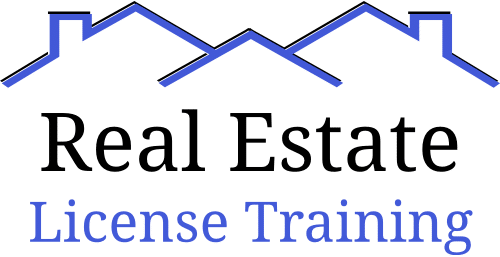Are you passionate about the real estate industry and eager to share your wisdom with others?
Or maybe you spent years in the industry and now want a more laid-back job…
Whatever the case, becoming a real estate counselor is a perfect career choice for you.
And here, we’re going to show you how to become a real estate counselor.
In this complete guide, we’ll walk you through:
- The job description
- The pros and cons
- The steps to becoming a real estate counselor
- The skills you’ll need
- And more!
So, buckle up and get ready to embark on an exciting journey toward a fulfilling career in real estate counseling!
What is a Real Estate Counselor?

To put it simply…
A real estate counselor is an expert in the property market who provides advice and guidance to clients looking to buy, sell, or invest in real estate.
These professionals are well-versed in market trends, property valuations, financing, and other aspects of real estate transactions.
They work with a wide range of clients, including individuals, corporations, and government agencies, you name it.
If someone needs advice on real estate, real estate counselors are the ones to provide it.
Pros and Cons of a Real Estate Counselor
Before deciding whether becoming a real estate counselor is for you, it’s essential to know the pros and cons that come with the job.
Below is a list of considerations for aspiring real estate counselors.
Pros
- Helping people: As a real estate counselor, you have the opportunity to guide clients through complex financial decisions. And this will make a significant impact on their lives.
- High earning potential: Real estate counselors enjoy an average annual salary of around $48,981 a year. However, with more experience and bigger clients, you can expect to earn $79,000 a year.
- Flexible work options: Real estate counselors can often set their own hours and choose whether to work independently or as part of a team. This makes it a more laid-bad career with a greater work-life balance.
Cons
- Staying current on industry trends: The real estate market is always changing. So it’s crucial to keep up-to-date on developments and trends to provide valuable advice to clients. But if this is something you love, then it isn’t a downside at all!
- Long journey: It will take a long time to become a real estate counselor. There are no shortcuts here. So you have to be determined.
- Navigating emotional aspects of real estate transactions: Clients may experience stress or anxiety during the process. It’s essential to maintain empathy and professionalism while guiding them through their decision-making journey.
How to Become a Real Estate Counselor – The 6 Steps
So real estate counseling is the career path for you?
Then here are the 6 steps to becoming one:
- Get a real estate license
- Gain real estate experience
- Obtain the necessary designations
- Develop your expertise
- Build your network
- Establish your business
Let’s walk through these steps one by one.
Step 1: Get a Real Estate License
As you’ll see, most states require counselors to have a real estate broker license.
However, you cannot get a real estate broker license without a real estate agent license.
And this is why this is the first step.
Now, every state will have different requirements for a real estate license. You can click here to get a chart of every state’s requirements.
But generally, here’s what you have to do:
- Meet the eligibility requirements
- Complete the required hours for real estate pre-licensing courses
- Pass the state’s real estate licensing exam
- Apply for your real estate license
- Find a sponsoring broker
After you get your real estate license, you can start working on your state’s real estate broker requirements. This will usually involve some real estate work experience, more pre-licensing courses, a real estate broker licensing exam, etc…
Step 2: Gain Real Estate Experience
Before you can become a real estate counselor, you’ll need a solid foundation in the industry.
This typically involves working as a real estate agent, broker, or in a related field for several years. You need this time to gain hands-on experience and expertise.
It’s also wise to work some years in real estate advisory work.
So forget about your real estate counselor career for now.
Focus on gaining relevant experience and expertise first.
In some states, you have to have at least 10 years of experience in the industry to get a real estate counselor certification.
Step 3: Obtain the Necessary Designations
While requirements vary by state, most real estate counselors need to hold a valid real estate broker’s license and either a CREC or CRE designation.
NOTE: Make sure you research your state’s specific requirements on this.
Now, both the CREC (Certified Real Estate Consultant) and CRE (Counselors of Real Estate) designations showcase your expertise in the industry.
Let’s dive into what each of these designations entails, and how they can contribute to your success as a real estate counselor.
Certified Real Estate Consultant (CREC) Designation
The CREC designation is a professional certification awarded to real estate professionals who have demonstrated high levels of expertise and knowledge in real estate consulting.
Earning this designation shows potential clients and colleagues that you possess the skills and experience needed to provide top-notch real estate advice.
To become a CREC, you’ll typically need to:
- Meet specific education and experience requirements. This includes completing a set number of real estate courses and accumulating a set number of years of professional experience in the field.
- Pass a comprehensive examination that tests your knowledge in various aspects of real estate consulting, including market analysis, property valuation, and investment strategies.
- Adhere to a code of ethics and professional standards that ensure you maintain the highest level of integrity and professionalism in your practice.
Counselors of Real Estate (CRE) Designation
The CRE designation is an exclusive title given to those who have proven excellence in the field of real estate counseling.
The Counselors of Real Estate®, an invitation-only organization, grants this designation to individuals who have made significant contributions to the industry and are recognized for their knowledge, integrity, and judgment.
Earning the CRE designation involves:
- Gaining at least 10 years of experience in a real estate-related profession, with at least 3 of those years in advisory work.
- Receiving an invitation to join the Counselors of Real Estate®, which includes professionals from various real estate disciplines.
- Completing a Request for Qualifications (RFQ) highlighting your qualifications and real estate counseling experience.
- Getting recommendations from clients and peers, who will vouch for your excellence, knowledge, integrity, and judgment in the field of real estate counseling.
- Demonstrating prominence in the profession, actively participating in the real estate community, possessing expertise in a specialty area, and adhering to a Code of Ethics.
- Paying annual dues of $1,750 and an initiation fee of $2,500.
Step 4: Develop Your Expertise
When you get your designation, don’t stop there.
As a real estate counselor, you’ll need to be well-versed in a wide range of topics, from market trends and property valuations to financing and legal issues.
Continually expanding your knowledge and staying current on industry news will ensure you can provide your clients with the best possible advice.
Remember, the real estate industry is constantly evolving. It’s essential to stay committed to your professional development.
Attend conferences, participate in workshops, and pursue additional certifications to keep your skills and knowledge current.
By staying at the top of your game, you’ll be better equipped to provide the highest level of service to your clients.
Step 5: Build Your Network
Networking is crucial to your success as a real estate counselor.
Even from the start, you should start building a network already.
Always look for opportunities to connect with others in your field to build relationships and develop a strong referral network.
To succeed as a real estate counselor, you’ll need a steady stream of clients. And the best way to find those is to reach out to your network for referrals. You can even develop strategic partnerships and invest in marketing efforts to grow your client base together.
Step 6: Establish Your Business
Once you’ve completed Steps 1 to 5, it’s time to set up your own real estate counseling business. Develop a strong brand, create marketing materials, and launch a website to showcase your services and attract clients.
With your experience, expertise, and certifications, you’re sure to draw attention to yourself.
The Skills Needed for a Successful Real Estate Counselor Career
Besides following the steps on how to become a real estate counselor, you should also work on other skills that will be helpful.
These skills will not only help you navigate the challenges of the profession but also enhance your overall effectiveness in your career.
Hone Your Communication and Interpersonal Skills
As a real estate counselor, you’ll often be translating complex information into easily digestible advice for your clients.
Developing strong communication and interpersonal skills will help you convey your insights effectively. It may also help you foster positive relationships with clients, colleagues, and industry professionals.
Embrace Adaptability and Resilience
The real estate industry is known for its ups and downs. So being adaptable is key to thriving in this dynamic environment. Cultivate a mindset of resilience and maintain a positive attitude even when facing challenges or setbacks.
Work Well Even in Irregular Hours
Real estate counselors often need to accommodate their clients’ schedules. Unfortunately, this may include evenings, weekends, or even holidays.
Be prepared to work outside traditional business hours.
Of course, you can still maintain a healthy work-life balance by setting boundaries and prioritizing self-care.
Stay Organized and Manage Your Time Effectively
Juggling multiple clients and tasks simultaneously can be overwhelming. It’s crucial for you to have a solid organizational system in place.
Use tools like digital calendars, project management apps, and task lists to stay on top of your workload — and ensure you’re meeting deadlines.
Be Great at Problem-Solving
A real estate counselor is a problem solver. Clients run to counselors whenever they face some problems or issues. So it’s a good idea to develop your problem-solving skills. This will make the job a lot easier for you.
Frequently Asked Questions About Real Estate Counselors
How much do real estate counselors earn?
According to ZipRecruiter, the average annual salary for real estate counselors is $48,981. The lowest salary is around $26,000, while the highest earning potential goes up to $79,000.
*These averages are as of July 2023.
Of course, your income may vary based on factors such as your location, experience, and clientele.
Do I need a real estate license to become a real estate counselor?
In most states, real estate counselors are required to hold a valid real estate broker’s license. They must also have a CREC or CRE designation. However, requirements can vary by state, so it’s essential to research the specific licensing criteria in your area.
How long does it take to become a real estate counselor?
Becoming a real estate counselor takes several years of experience in the industry, followed by obtaining the necessary designations.
The exact timeline will depend on factors such as your educational background, work experience, and commitment to professional development.
Expect the whole process to take you around 10 years (or more).
Can I specialize in a specific area of real estate counseling?
Yes! Many real estate counselors choose to specialize in a particular area, such as commercial property, residential sales, or property management. Specializing can help you stand out in the market and attract a specific clientele.
What are the most important skills for a successful real estate counselor?
Some essential skills for real estate counselors include strong communication and interpersonal abilities, analytical thinking, problem-solving, organization, and time management.
Is there a demand for real estate counselors?
As long as people continue to buy, sell, and invest in real estate, there will be a demand for knowledgeable professionals to guide them through the process. The real estate market is ever-evolving. As such, the need for experienced real estate counselors is likely to remain strong.
How do I find a mentor or network with experienced real estate counselors?
Finding a mentor or networking with experienced real estate counselors can be an invaluable resource as you build your career.
To connect with professionals in the field, consider the following:
- Join professional associations, such as the National Association of Realtors (NAR) or the Counselors of Real Estate (CRE). These 2 offer networking opportunities and events for members.
- Attend real estate conferences, seminars, and workshops. Here, you can meet like-minded professionals and exchange ideas and experiences.
- Reach out to established real estate counselors in your area, and express your interest in learning from their experience. You can find them through online directories, social media platforms, or even by asking for recommendations from your existing network.
- Participate in online forums, discussion groups, and social media communities focused on real estate counseling to connect with professionals from around the world.
Wrap Up
And that is how to become a real estate counselor.
Now that you have a clear understanding of what it takes to become a real estate counselor, it’s time to take action!
By following the steps outlined in this guide and staying committed to your professional development, you’ll be well on your way to a rewarding career in real estate counseling.
With hard work, dedication, and a passion for helping others, you’ll not only build a thriving business but also make a meaningful impact on the lives of your clients.
Best of luck to you on your journey!

